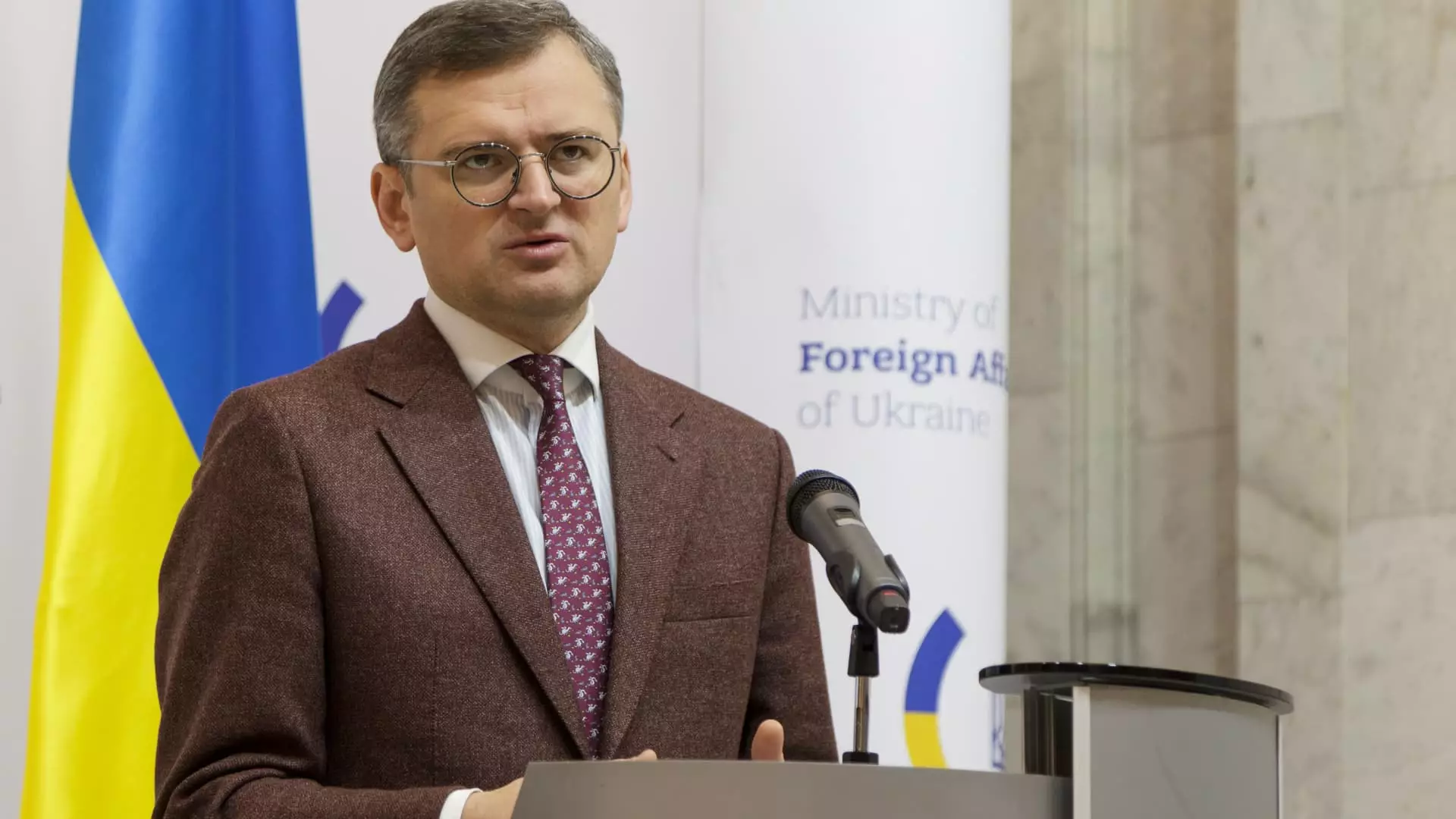The ongoing conflict in Ukraine, sparked by Russia’s aggressive invasion, has brought not only significant turmoil to the region but also raised critical questions regarding the security and stability of Europe as a whole. Former Ukrainian Foreign Minister Dmytro Kuleba has articulated a sobering message about the potential fallout for the European Union if Ukraine does not emerge victorious in its struggle against Russian forces. In a recent interview with CNBC, he made it clear that the implications of a Ukrainian defeat could extend far beyond its borders, suggesting that the prospect of war could eventually reach European cities.
Kuleba’s assessments are grounded in geopolitical realities that underline how interconnected global security threats are today. He argues that the current trajectory of the conflict will define the future of Europe, asserting that a failure for Ukraine could lead to aggressive actions by Russia spilling over into European nations. Drawing parallels with historical conflicts, Kuleba suggests that when an aggressor is not effectively countered, it gains confidence to extend its ambitions. Citing recent events in Syria, he highlighted that although Russian President Vladimir Putin currently lacks the ability to wage multiple wars simultaneously, he certainly has the resources to focus on one, and Ukraine is at considerable risk.
Kuleba’s warning represents a critical examination of how military successes or failures in Ukraine will influence geopolitical landscapes. If Ukraine is perceived as vulnerable, it may embolden Russia to further disrupt peace in Europe, challenging the foundations of the EU’s stability and collective security over an extended period.
The issue of Ukraine’s NATO membership has long been a point of contention within the alliance, primarily due to the complexities surrounding autonomous membership approval. Kuleba insisted that NATO membership remains a pivotal step—one that would not only solidify Ukraine’s security but also act as a deterrent to future Russian aggression. His comments suggest that merely providing security guarantees, which have been offered to Ukraine in the form of commitments from certain nations, may not suffice to prevent future conflicts. He stresses that the very notion of postponing Ukraine’s NATO membership could yield temporary peace but ultimately fails to address the root concerns regarding the motivations of the Kremlin.
As political winds shift, especially with significant leadership changes in the U.S., Kuleba is keen to observe the forthcoming policies of President-elect Donald Trump. Trump’s prior statements advocating for a rapid ceasefire demonstrate a potential pivot in U.S. diplomacy. However, Kuleba remains cautious, reminding the audience that the true key to peace resides not within Ukraine’s control but in Moscow’s willingness to adopt a more conciliatory stance.
When discussing the delicate matter of potential peace settlements, Kuleba maintained that President Zelenskyy must be adamant about protecting Ukraine’s territorial integrity. The notion of conceding land, even for the sake of peace, runs counter to nationalistic sentiments and constitutional mandates in Ukraine. The complex dynamics of negotiation with a formidable adversary like Russia require cautious navigation, acknowledging the difficulty of achieving a resolution without compromising critical national interests.
Kuleba’s insights also touch upon the escalating military engagement between Ukraine and Russia, wherein he emphasizes the necessity for Ukraine to respond robustly to ongoing provocations. In light of recent large-scale assaults targeting Ukraine’s vital infrastructure, his stance is abundantly clear; in the face of relentless aggression, Ukraine cannot adopts a passive approach. The reality remains that escalating military responses may be the only effective means to ensure sovereignty when faced with relentless hostility.
As the situation unfolds, the stakes remain alarmingly high—not only for Ukraine but for the broader European community. Kuleba’s reflections serve not only as a warning but also as a clarion call for European unity against potential threats. The lessons of history indicate that a failure to address such aggressions leads to larger conflicts down the line. Ultimately, the decisions made today regarding support and solidarity with Ukraine will significantly influence the security landscape of Europe for generations to come.

